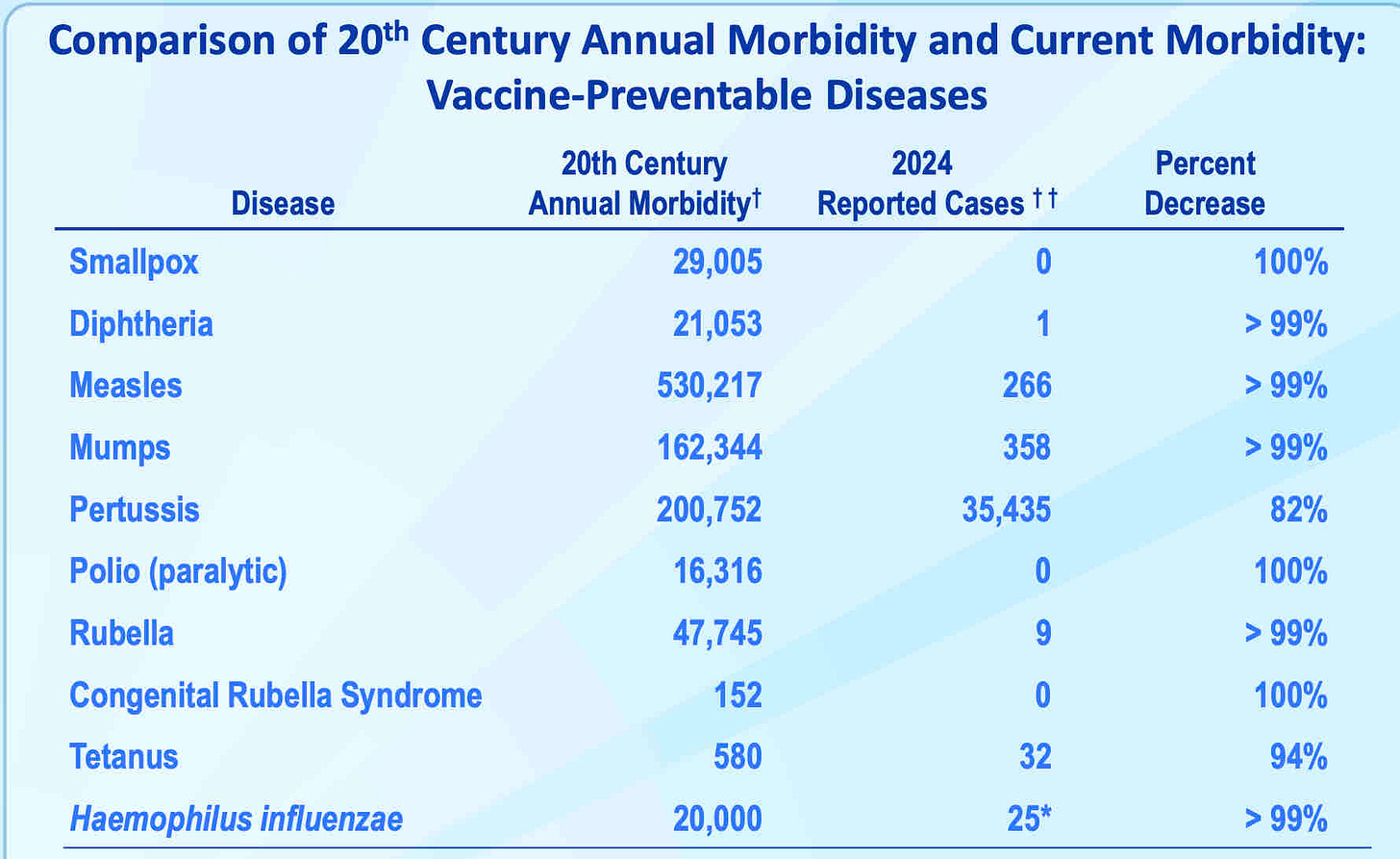Summary: Vaccination has been associated with a remarkable decline in infectious disease in the U.S., but lower vaccination rates threaten this progress.
Source: Centers for Disease Control and Prevention, 2023 Here is a link to a recent editorial in JAMA on this topic, too.
Florida has proposed eliminating school vaccine mandates, and vaccine hesitancy appears to be on the rise. While 84% of parents reported that they intended to fully vaccinate their children in a KFF poll this summer, that is below the rate of vaccination necessary to achieve herd immunity for exceptionally contagious diseases like measles.
Vaccines led to the elimination of diseases including smallpox, diphtheria, mumps, and rubella from the U.S. Furthermore, congenital rubella syndrome, which causes deafness, blindness, and cognitive impairment, has been eliminated here. There has been only a single case of paralytic polio in the U.S. since 1979. But many of these diseases remain a danger in other parts of the world, and infectious diseases cross borders easily. Without continued high levels of vaccination, we will return to fearing these diseases - and incurring the medical costs of treating these diseases.
Here’s a link to a previous post on the benefit of childhood vaccines, and a post from fall, 2024 about how I was influenced by people suffering long-term complications of rubella and polio.
Implications for employers:
Pediatric vaccines remain one of the few medical services that are generally cost-saving.
Employers should continue share credible sources of information to encourage vaccination according to evidence-based guidelines.
Many employers offer workplace vaccine clinics. While these don’t offer pediatric vaccination, they establish an environment encouraging vaccination.

